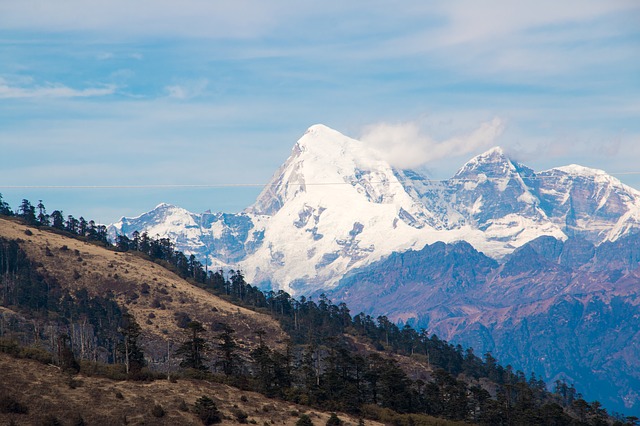New weather stations support climate and water research in Bhutan
- February 13, 2018
- Posted by: administrator
- Category: Environmental, Asia

Researchers have set up four weather stations in a preserve in the mountains of north Bhutan for the first time, allowing them to monitor conditions at various altitudes over the long-term.
The Ugyen Wangchuk Institute for Conservation and Environmental Research (UWICER) set up these hydro-meterological (hydromet) stations at elevations between 9,100 feet and 13,400 feet along a slope in the institute’s research preserve to monitor weather data, and help gauge long-term climate trends.
The weather stations, set up with support from WWF’s Conservation and Adaptation in Asia’s High Mountains (AHM) project and funded by USAID, are part of an integrated, climate-smart approach to conservation and adaptation in the region.
The hydro-meteorological data collected—such as daily precipitation, temperature, and the volume of water moving down a river or stream during a given period—will fill a gap in climate information at the edge of THE snow leopard range in Bhutan, and complement ongoing studies at the institute.
Data from these weather stations will be at the core of new studies on the impact of climate change on the water cycle and stream ecosystems. Researchers have already mapped 350 water sources around the research preserve with AHM support, and this new data will provide the needed climate angle.
AHM has also established two climate-smart demonstration villages in partnership with UWICER, that provide remote communities with biogas, greenhouses, water source management, and solar fencing to help them adapt to the climate changes they are already experiencing. The project has also supported the development of the institute’s expertise in water and climate science.
By building weather stations to collect climate data, establishing demonstration sites that allow the testing of adaptation interventions, and organizing events at which researchers can come together and share both their research and practice, WWF is helping UWICER lay the foundation for better climate research and interventions for years to come.
